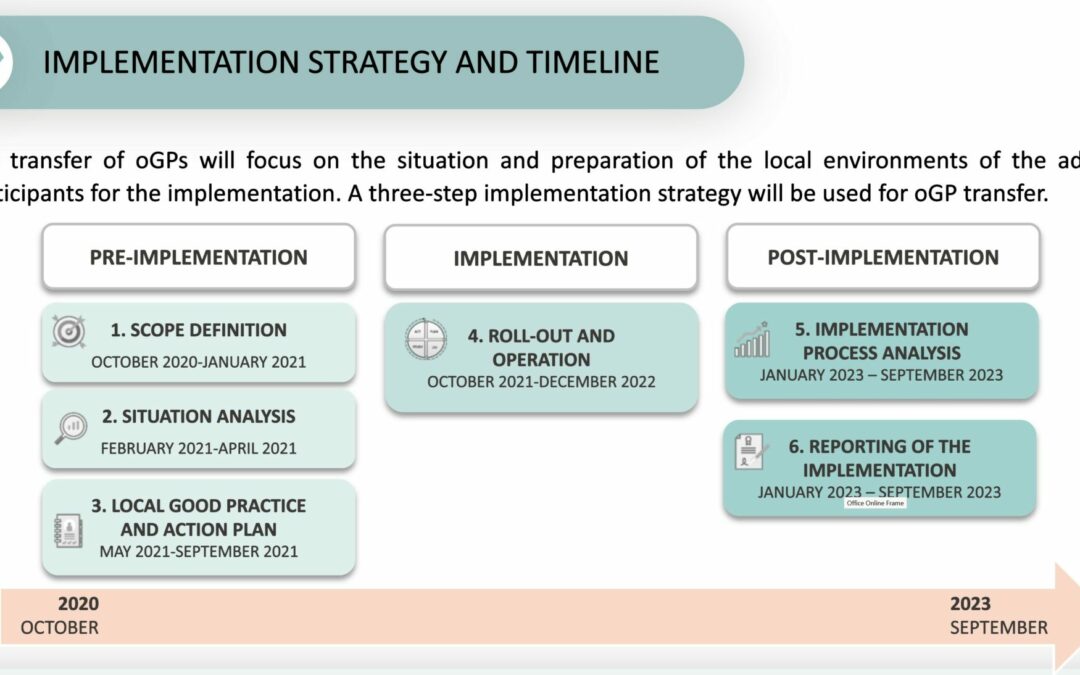For the transfer of the good practices selected by the European Commission an implementation strategy has been developed. The strategy includes a set of methods and techniques, concrete procedures and recommendations. It aims to improve the quality of adoption and sustainability of JADECARE good practices in the 23 Next Adopters, taking into account their particular needs, interests, possibilities and expectations. To achieve this, the strategy has to be scientifically appropriate, applicable taking into account the availability of data and feasible within the timeframe and resources of the project.
The JADECARE implementation strategy consists of three consecutive steps that will be developed by all “Next Adopters”: Pre-implementation, Implementation and Post-implementation. The completeness of these steps and the proposed methodology will ensure the transfer of good practices to the “Next adopters” and thus conclude the project.
The objective of the pre-implementation phase has been to elaborate the Local Good Practices (LGPs) and the Local Action Plans (LAPs) to be followed during the implementation step. In this first phase, the Next Adopters have developed a report where they make a deep exploration of their needs, select the Strategic Intervention Areas they would like to tackle and also chose the Core Features of the original Good Practices (oGPs) to be implemented and integrated in their routine practice. In this phase, the Next Adopters have also conducted a situation analysis using the SWOT analysis tool, thanks to what they have identified their Strengths (S), Weaknesses (W), Opportunities (O), and Threats (T) in what JADECARE concerns. Finally, the Next Adopters have built their Local Good Practices (LGPs) and Local Action Plans (LAPs), that is, the description of their local intervention and the concrete actions to be taken to reach implementation and sustainability during JADECARE.
The second phase of implementation that will be carried out during the following months, will consist of the execution and monitoring of the Local Action Plans, by means of specifying and describing the steps in the process of transferring and adopting LGPs into real practice. To guide the implementation, two Plan-Do-Study-Act (PDSA) cycles will be utilised.
In the last step of post-implementation, aspects of the implementation that could determine implementation success will be specified, analysed and reported. As a result, the Next Adopters will report the analysis and interpretation of the results and a summary of what has been learnt during the implementation of JADECARE, by means of the Consolidated Framework for Implementation Research (CFIR) and an adapted version of the Revised Standards for Quality Improvement Reporting Excellence (SQUIRE 2.0) guidelines.
The implementation strategy has been developed in the framework of Work Package 3 (WP3): Evaluation, and more precisely, Task 3.2 Quality Assurance of Implementation, led by Kronikgune Institute for Health Services Research. To facilitate the understanding of the oGPS and all the Next Adopters that will be involved in the different phases explained above several webinars have been organized. Moreover, documentation has been shared in advance and particular questions have been solved throughout the whole process by the WP3.
